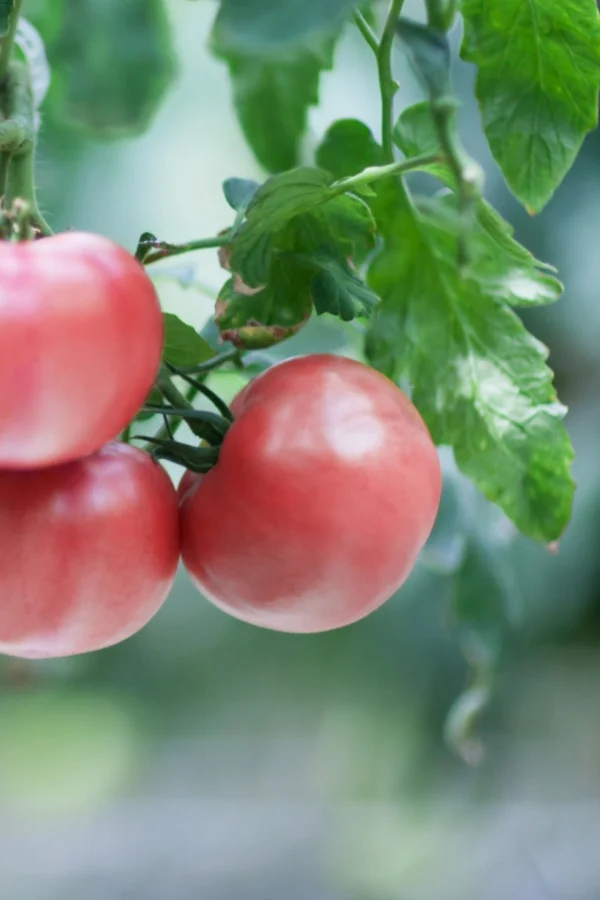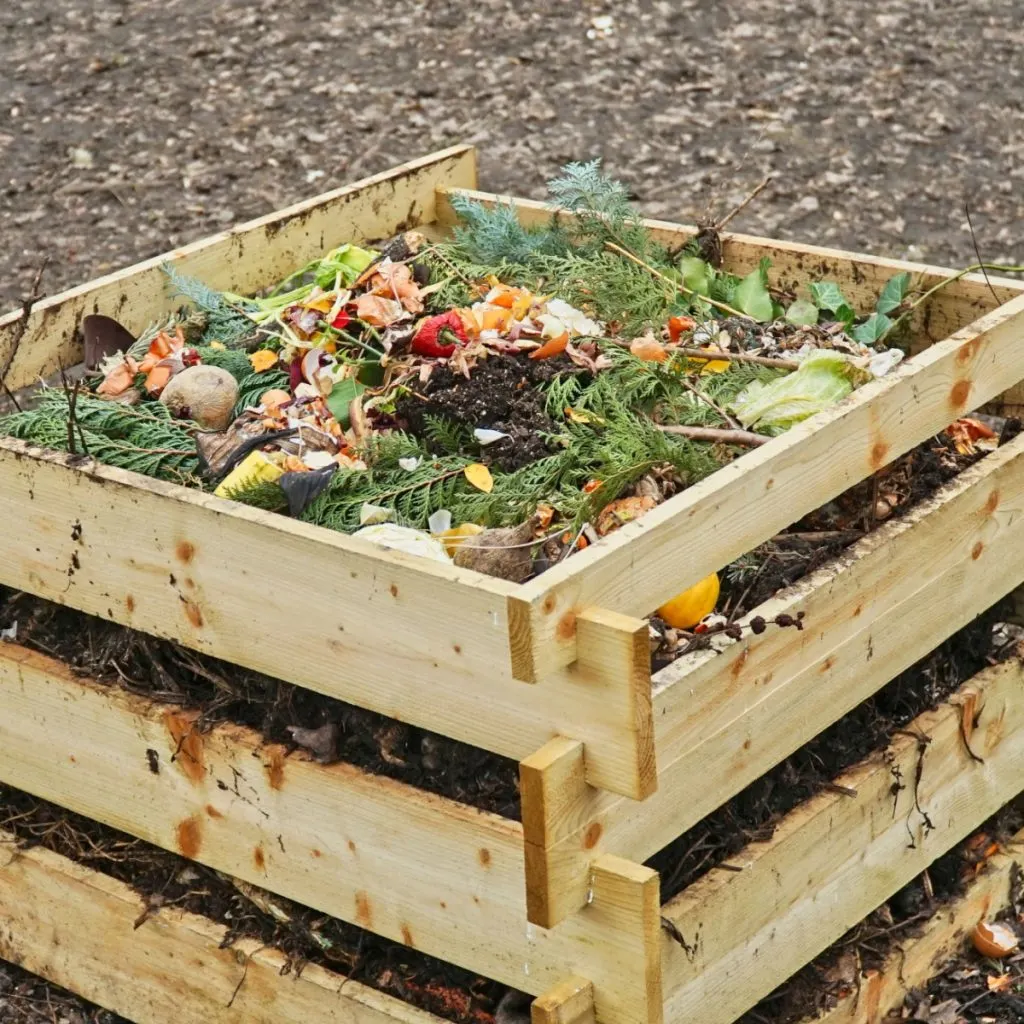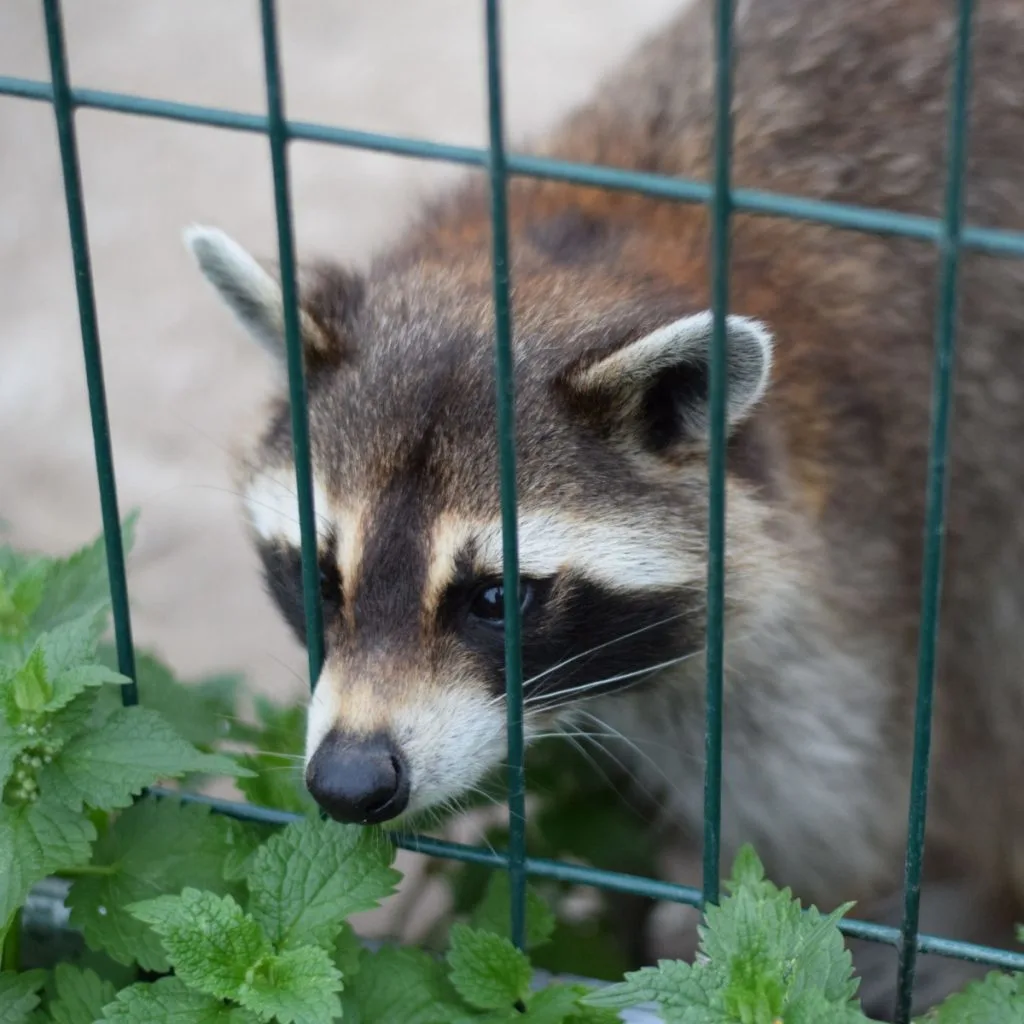Looking for a few simple tips to protect your tomato plants and tomatoes from hungry raccoons?
When it comes to protecting your tomato plants in the garden, one of the more frustrating problems gardeners face is the damage caused by raccoons. These curious and clever animals might look harmless, but when it comes to tomatoes, they can cause big trouble.
Raccoons absolutely love ripe tomatoes. They’ll often wait until the fruit is nearly perfect, then swoop in during the night and ruin not just one or two tomatoes – but often the entire crop. Worse yet, they don’t always eat the whole tomato. Many times, they’ll take a bite or two from each fruit, leaving behind a mess of half-chewed and broken tomatoes still hanging on the vine.

Their search for food can also cause damage to the actual plants as they rip off branches and crush stems with their weight and movement.
So how can you stop them? The key to keeping raccoons from wiping out your tomato crop lies in understanding their habits. And then, putting a few smart strategies in place to stop them before they get a chance to cause damage. Fortunately, there are several highly effective ways to do just that!
How To Protect Your Tomato Plants From Raccoons!
#1 Pick Your Tomatoes Early
One of the most successful methods to protect tomatoes from raccoons is to simply harvest your tomatoes early. Although it might seem counterintuitive, picking your tomatoes before they fully ripen is actually better for both the fruit and your plants.
Raccoons are attracted to the bright red color of fully ripe tomatoes. They also love the strong scent they release when they’re soft and juicy. But if you harvest your tomatoes as soon as they begin to blush – when they start to show a bit of color but are still mostly firm – you’ll remove the primary attraction before raccoons can get to them.
This method works because tomatoes will continue to ripen off the vine just as well, if not better, than they do when left to fully mature in the garden. See: How To Know When To Pick Tomatoes – The Best Time To Harvest A Tomato!

Once picked at the blushing stage, they will gradually ripen indoors over a few days. As they do, they develop the same deep red color and full flavor. All without the risk of being damaged by wildlife. By bringing them inside before they are fully ripe, you also reduce the chances of insects and birds attacking the fruit as well.
It’s a win for both your harvest and the long-term health of your tomato plants. They will suffer less stress and broken branches from raccoon activity. And so will you!
#2 Locate Your Compost Pile Out Of The Garden
Another important tip for deterring raccoons from your tomato patch is to be cautious about where you place your compost pile or bin.
Raccoons are constantly on the lookout for easy sources of food. And a compost pile filled with fruit and vegetable scraps is like a free buffet. Even if the compost bin is closed, raccoons can smell decomposing food from quite a distance and will quickly zero in on its location.
If that compost pile happens to be near your garden, it’s only a short trip for the raccoon to check out your tomato patch after its initial snack. In fact, placing compost bins too close to a garden can serve as an open invitation to any wildlife in the area.
Once they become comfortable feeding near your plants, it’s only a matter of time before they start exploring further and discovering your tomato plants. That’s why it’s best to keep any compost bins or piles far away from your growing areas.

Ideally, place compost at the far end of your property. At the very least, on the opposite side of any gardens or fruit patches. It can also help to cover your compost with a secure lid. Finally, add a layer of dried leaves or straw on top after each addition to help reduce odors.
#3 Using Hot Pepper Spray To Protect Your Tomato Plants
Hot pepper spray can be a great way to make your tomato plants less appealing to raccoons. When sprayed on tomato plants and fruit, it won’t harm the plant. But it will make the experience of chewing or licking the fruit extremely unpleasant for animals.
Raccoons have very sensitive noses and mouths. Once they taste the spicy burn of the hot pepper spray, they’ll often avoid that plant. And usually even your whole garden going forward.
To make your own pepper spray at home, you can blend a few hot peppers like cayenne or habanero with water, strain out the solids, and then mix in a teaspoon or two of mild dish soap. Spray the solution directly on your tomatoes and plant leaves, being sure to reapply after rain or heavy dew. You will need to wash your tomatoes well before eating them if you plan to spray the fruit directly.
#4 Using Ultrasonic Sound & Light Spikes
Another useful and modern approach to keeping raccoons out of the garden is to use solar-powered ultrasonic pest repellent stakes. Affiliate Link: 4 Pack Solar Animal Repellent Ultrasonic Outdoor Raccoon Repellent.

These devices are designed to detect motion and respond with a burst of sound and light. While the sound is barely audible or completely silent to humans, it is quite irritating to many animals, including raccoons.
The sudden flash of light that goes along with the sound adds another layer of deterrence. Especially during nighttime when raccoons are most active.
The beauty of these ultrasonic repellents is that they’re easy to install and maintain. Most come in the form of stakes that you simply push into the soil around your garden. Once in place, they charge during the day using solar panels. They then activate automatically at night when they sense movement.
For the best coverage, you can place several of these around the perimeter of your garden. Some versions even allow you to adjust the sensitivity and frequency of the ultrasonic sounds.
Keeping Ahead Of Raccoons
Finally, keeping your garden area clean and trimmed can also help. Raccoons prefer to move around under the cover of brush, tall grass, or dark corners. By mowing around the garden and removing clutter or piles of debris, you eliminate their hiding spots and make them feel more exposed.
The more open and clean your garden space is, the less appealing it becomes for a raccoon looking to sneak in for a late-night snack.
Staying one step ahead of them is the biggest key of all to protecting your tomatoes and tomato plants from raccoons. Once you understand how and why raccoons come around, it becomes much easier to outsmart them and keep your tomato plants safe all season long! For more tips on keeping your tomatoes safe until harvest time, be sure to check out: How To Help Tomato Plants Avoid Blight In The Summer – 3 Simple Ways To Keep Plants Safe!
I Grow Tomatoes
Follow Our Facebook Page For Even More Great Tomato Growing Tips! I Grow Tomatoes Facebook Page
I Grow Tomatoes is a website created for those who love all things about tomatoes – from planting and growing – to cooking and canning! We publish two articles every week, 52 weeks a year. Sign up today to follow via email! This article may contain affiliate links.
